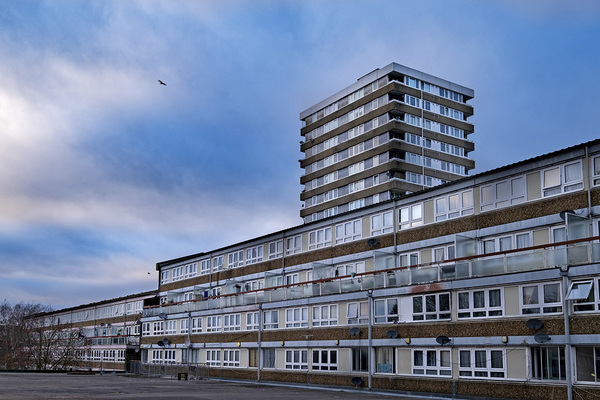Provider failed to pay all rent due to Triple Point in second half of last year
A registered provider of specialised supported housing cited “operational issues” over its failure to pay all of the rent due to Triple Point Social Housing REIT in the latter half of 2022.
Triple Point, which partners with developers to fund the building of homes aimed primarily at young adults with care needs, acknowledged the rent arrears as part of a stock market update today for the 12 months ending 31 December 2022.
The update also revealed a portfolio made up of 3,456 units and 497 properties with a weighted average unexpired lease term of 25.3 years.
The company said this demonstrated strong resilience during the period, underpinned by growing excess demand for specialised supported housing, which represents 88.5% of its portfolio by rent roll.
However, Parasol Homes, which makes up 9.6% of that figure, failed to pay all of the rent due to Triple Point in the latter half of last year because of “operational issues”.
It did pay some of the rent last year but that figure was not able to be disclosed.
The update said the provider is working to address these issues and the company expects it to agree to a rent repayment plan. Parasol has been contacted for comment.
The trading update also expressed concern about the solvency of another lessee, My Space Housing.
The Regulator of Social Housing (RSH) downgraded the lease-based provider to the lowest possible viability and governance grades after its failure to provide evidence was branded “unacceptable” at the end of last year.
The English regulator said it will take enforcement action against My Space and has downgraded the landlord’s already non-compliant grades for financial viability and governance to the lowest possible grades of V4 and G4.
Triple Point said it is “actively looking to move properties away from My Space to alternative housing providers”, but notes the regulator’s request that My Space consider, among other things, the option of a business combination or merger which might negate the need to move properties.
“Were properties to be moved to an alternate housing manager, protecting the welfare of the residents of these properties would be the group’s principal concern. The company notes lease terms may be amended as part of any transfer.”
My Space said: “The charity continues to work proactively with the RSH and Triple Point to ensure the welfare of the charity and its tenants. The charity is currently assessing its compliance to the regulatory standards and will continue to consider the regulator’s enforcement notice in full.”
Triple Point has asked its valuer to assess the downside risk and the negative impact on the value of the group’s property portfolio in the event that My Space were to go into administration.
The company’s 25 other lessees all reported no material arrears and 91.7% of rent due was collected for the period.
The trading update also pointed out that Triple Point maintains significant covenant headroom within its credit facilities alongside additional liquidity in the form of £26.9m of cash, and unencumbered properties with an aggregate valuation of £70.8m as at 30 September 2022.
Max Shenkman, head of investment at Triple Point, said: “Over the last five years, we have built a UK-wide portfolio of properties leased to a diversified range of counterparties, most of whom focus on providing long-term specialised supported housing to people with care and support needs.
“Other than in two isolated instances, our lessees have adjusted to the impact of a changing macroeconomic and operating environment effectively, despite the rising cost of providing their services.
“We continue to actively manage two isolated cases of material rent arrears in our portfolio. We believe in proportionate specialist industry regulation and its ability to enhance governance and service provision in social housing.”
Triple Point said it will also apply a temporary one-year cap of 7% to its leases with its providers for the financial year ending 31 December 2023.
This is to take into account the “current high inflationary environment” and to remain aligned with the UK government’s 7% cap on social housing rent increases, despite specialised supported housing being excluded from the cap.
The news of the rent arrears follows the claim made last week by Home REIT, a private fund that leases more than 10,000 beds across 135 local authorities for charities to provide accommodation to homeless residents, that the Liverpool-based Big Help Group had not paid rent “contractually due” for the quarter to 30 November 2022.
However, the charity claims that the rent is not owed, as it was required to invest its own resources to bring the properties it leased up to standard, and agreed rent waivers from the fund to claim back this cost.
Sign up for our development and finance newsletter
Already have an account? Click here to manage your newsletters












